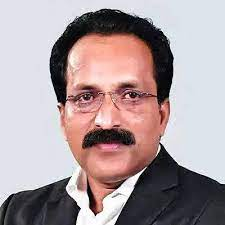
Table of Contents
ISRO Chief
The Indian Space Research Organisation (ISRO) has consistently been a beacon of technological and scientific advancement, propelling India to the forefront of space exploration and satellite technology. Recently, the ISRO Chief, Dr. S. Somanath, was honored with an honorary doctorate by Visvesvaraya Technological University (VTU), a prestigious institution in Karnataka, India. This recognition not only celebrates Dr. Somanath’s contributions to space science but also highlights the broader significance of ISRO’s achievements for the country and the global scientific community.
Visvesvaraya Technological University: An Overview
Visvesvaraya Technological University, named after Sir M. Visvesvaraya, a renowned engineer and statesman, is one of the leading technological universities in India. Established in 1998, VTU offers a diverse range of undergraduate, postgraduate, and doctoral programs in engineering, technology, and management. The university is known for its emphasis on research, innovation, and excellence in technical education.
Dr. S. Somanath: A Profile
Dr. S. Somanath, the Chairman of ISRO, is a distinguished aerospace engineer with a career marked by notable achievements in space science and technology. Under his leadership, ISRO has continued to break new ground in space exploration, satellite technology, and space missions.
Educational Background and Career:
Dr. Somanath holds a Bachelor’s degree in Engineering from the Government Engineering College, Kozhikode (now part of the National Institute of Technology Calicut), and a Master’s degree in Aerospace Engineering from the Indian Institute of Technology (IIT) Kharagpur. He earned his Ph.D. in Aerospace Engineering from the Indian Institute of Science (IISc), Bengaluru.
His career began with the development of launch vehicle technology, and he played a pivotal role in the design and implementation of several key ISRO missions. He has been involved in the development of the GSLV (Geosynchronous Satellite Launch Vehicle) and GSLV Mk III, which are crucial for launching heavier payloads into geostationary orbits.
The Honorary Doctorate: Significance and Impact
The honorary doctorate awarded to Dr. Somanath by VTU represents a formal acknowledgment of his remarkable contributions to space science and technology. The recognition is significant for several reasons:
**1. *Acknowledgment of Excellence:*
The honorary doctorate is a testament to Dr. Somanath’s exceptional contributions to the field of aerospace engineering and space exploration. His work has not only advanced India’s space capabilities but has also enhanced the global standing of ISRO as a leading space agency.
**2. *Inspiration for Future Generations:*
Receiving this accolade serves as an inspiration to students and young professionals in the fields of science, technology, engineering, and mathematics (STEM). Dr. Somanath’s achievements underscore the possibilities within the realm of space science and encourage future generations to pursue careers in these fields.
**3. *Promotion of Research and Innovation:*
The recognition also highlights the importance of research and innovation in driving technological progress. Dr. Somanath’s career exemplifies how dedication to research can lead to groundbreaking developments, such as advancements in satellite launch technology and space exploration missions.
**4. *Strengthening Academic and Industry Links:*
The honor reinforces the connection between academia and industry. By recognizing an industry leader like Dr. Somanath, VTU emphasizes the value of collaboration between educational institutions and industry in fostering innovation and technological advancement.
ISRO’s Recent Achievements
Dr. Somanath’s tenure as ISRO Chairman has been marked by several notable achievements that underscore the significance of his work:
**1. *Chandrayaan-3 Mission:*
The successful landing of Chandrayaan-3 on the Moon’s surface in August 2023 was a historic achievement for ISRO. This mission, which followed the earlier Chandrayaan-1 and Chandrayaan-2 missions, demonstrated India’s ability to conduct complex lunar exploration missions and provided valuable data about the Moon’s surface.
**2. *Gaganyaan Mission:*
ISRO’s ambitious Gaganyaan mission aims to send Indian astronauts to space. Under Dr. Somanath’s leadership, ISRO has made significant progress in developing the necessary technology and infrastructure for this manned space mission, marking a new chapter in India’s space exploration endeavors.
**3. *Advancements in Satellite Technology:*
ISRO has continued to enhance its satellite technology, including the development of the Indian National Satellite System (INSAT) and Indian Remote Sensing (IRS) satellites. These advancements have broad applications, including communication, weather forecasting, and resource management.
**4. *International Collaborations:*
ISRO has expanded its collaborations with space agencies and organizations worldwide, contributing to international space research and fostering global cooperation in space exploration.
The Broader Implications of the Honor
The honorary doctorate awarded to Dr. Somanath is a reflection of the broader impact of ISRO’s work on science and technology. It symbolizes the recognition of India’s growing prominence in space science and the global appreciation for its achievements.
**1. *Global Recognition:*
The accolade positions India as a significant player in the global space community. ISRO’s advancements contribute to international scientific knowledge and foster collaboration with other space agencies, reinforcing India’s role in global space exploration.
**2. *Encouragement of STEM Careers:*
The recognition serves to motivate students and professionals to pursue careers in STEM fields. By celebrating achievements in these areas, VTU and other institutions can inspire a new generation of scientists, engineers, and innovators.
**3. *Advancement of Technical Education:*
The honor underscores the importance of technical education and research. It highlights the role of educational institutions in nurturing talent and supporting research that leads to technological advancements.
Conclusion
Dr. S. Somanath’s reception of an honorary doctorate from Visvesvaraya Technological University is a significant moment for both ISRO and the broader scientific community. This recognition celebrates his outstanding contributions to space science and technology and reflects the broader achievements of ISRO under his leadership. It also emphasizes the value of academic and industry collaboration, the importance of inspiring future generations, and the global impact of technological advancements. As ISRO continues to reach new milestones in space exploration and satellite technology, honors like this serve as a testament to the organization’s enduring legacy and its contributions to humanity’s understanding of space.







